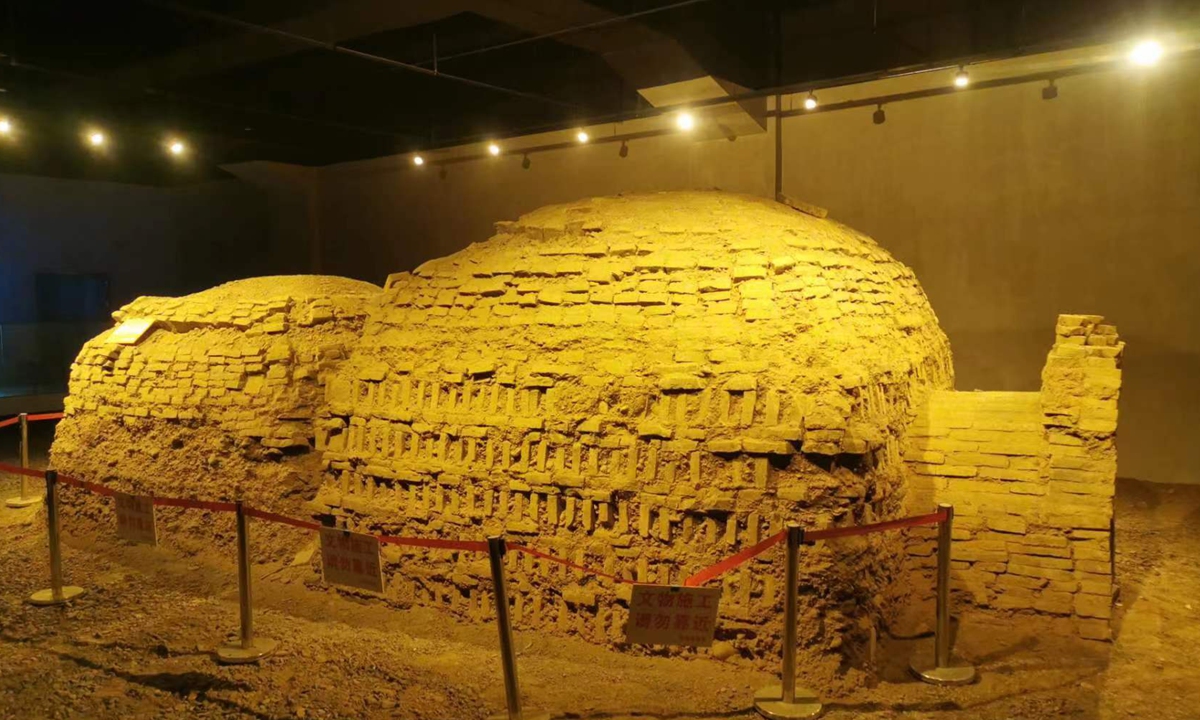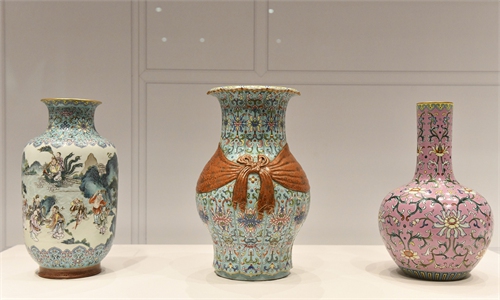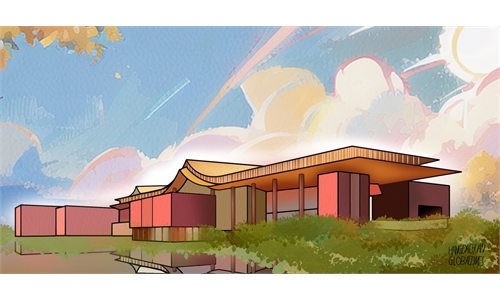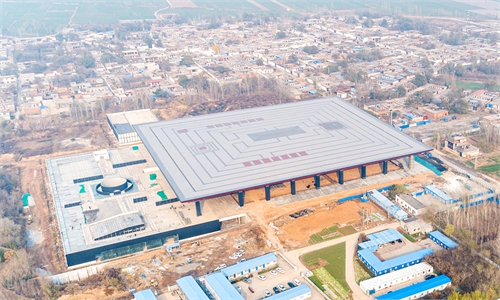ARTS / CULTURE & LEISURE
Xinjiang's first underground tomb museum to open in July

Photo: Courtesy of Kuqa Bureau of Culture, Sports, Radio, Television and Tourism
Northwest China's Xinjiang Uygur Autonomous Region's first underground tomb museum is scheduled to open in July so visitors can get closer to the Kucha kingdom, an ancient Buddhist kingdom that witnessed the frequent cultural exchanges that took place along the ancient Silk Road.
The museum is dedicated to the Kuqa Youyi Road site that is located in Kuqa county in Xinjiang's Aksu Prefecture.
Wang Sikang, an archaeologist specializing in ancient Chinese architecture, told the Global Times that the Kuqa Youyi Road ruins, an ancient tomb cluster that existed alongside the Jin Dynasty (265-420) and Sixteen Kingdoms Period (304-439), is the only tomb site discovered in Xinjiang made from brick and which possesses the "characteristics of Han tombs widely seen in the Central Plains."
"It is a model site in Xinjiang showing how the Central Plains' cultural and social customs had a great impact on the Kucha people," Wang noted.
Revealed by the Kuqa Bureau of Culture, Sports, Radio, Television and Tourism, the museum covers a total area of 9,719 square meters and will have exhibition halls, as well as halls for cultural creative shows.
1It will be a dynamic cultural space that has an "unusual" underground level that reveals a total of 15 tombs to the public.
This incorporated "underground" configuration has never been seen in a Xinjiang museum before.
Ma Lili, the director of the Kucha Museum of Kuqa County said that along with the remains of the tomb, the underground level hosts other exhibitions such as "funeral customs and rites," "Kucha history during the Wei [220-265] and Jin" and also "crafts, trade and technology."
The Kucha kingdom was one of the most notable kingdoms in ancient China's western region. Historian Tao Zhongjun told the Global Times that the ancient kingdom was the "throat" of the ancient Silk Road.
In 2007, the site was listed as one of the 10 notable archaeological discoveries in China. Cultural sociologist Chu Xin told the Global Times that the "archaeological spot and museum combination" is a better approach to preserving history while "enlarging its public educational significance."
"Local archaeological spots like this are plentiful across the country, on-site museums like this safely preserve relics' cultural authenticity," Chu said.



